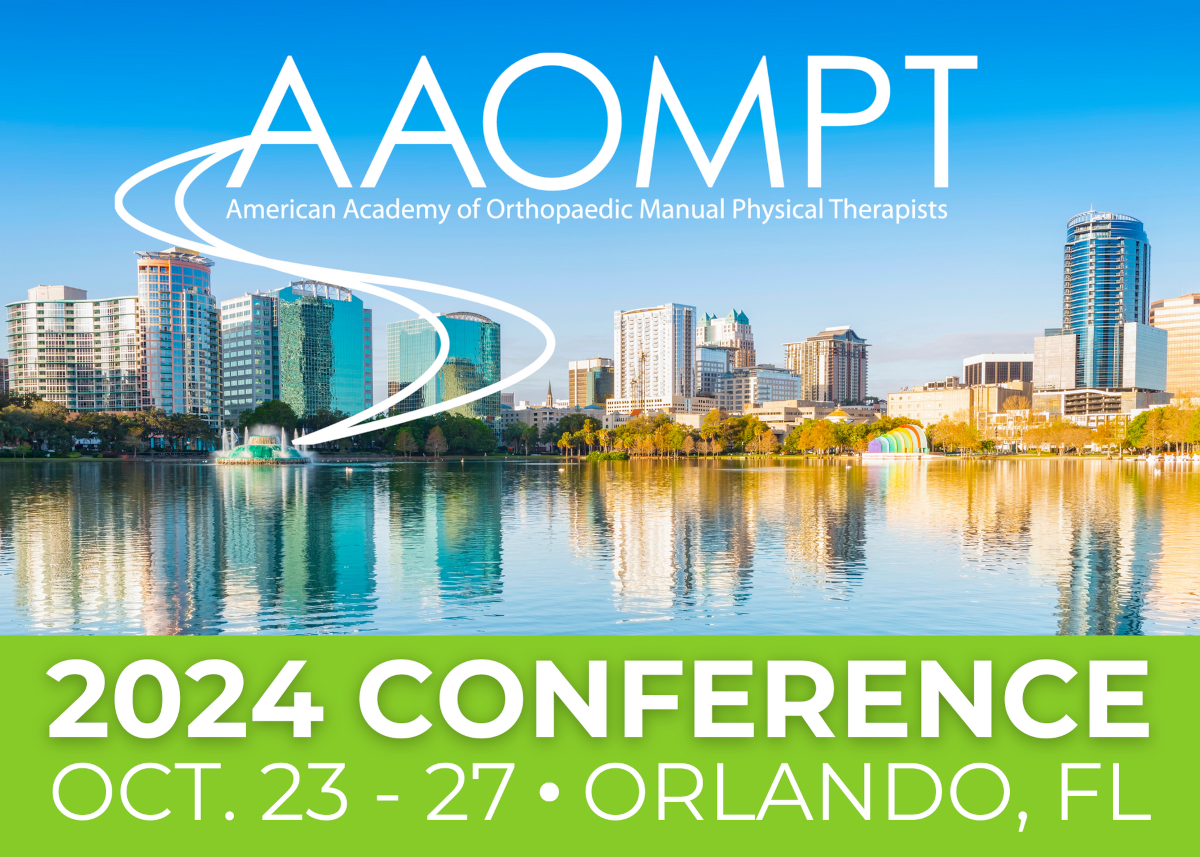AAOMPT 2024 Annual Conference

How to Register
- Click "Register Myself" below
- Click "Edit registrant Information" and verify/update your Informal name (badge nickname) and other details.
- Select one registration option
- Answer questions and click "Save Responses"
- Continue below to add pre-conference sessions (if desired) and/or indicate which breakout sessions you plan to attend
If adding a guest to your registration
- Click the "Add a guest" button
- Enter your guest's details
- At this point if you need to alter your registration, click on yourself under the "Registrants" section to access your registration options and information.
- Click the "Proceed to Checkout" button at the bottom of the screen
- Enter your payment information and submit to pay for your registration
After you submit your payment, you will be emailed a receipt for your transaction and be directed to a confirmation page. On that page, you will have the option of emailing your receipt to additional addresses. If you have any questions or issues with the registration process, please contact the AAOMPT office at [email protected] or (225) 360-3124.
Click Here to View Full Schedule
Registration
Last day to register is 10/13/2024